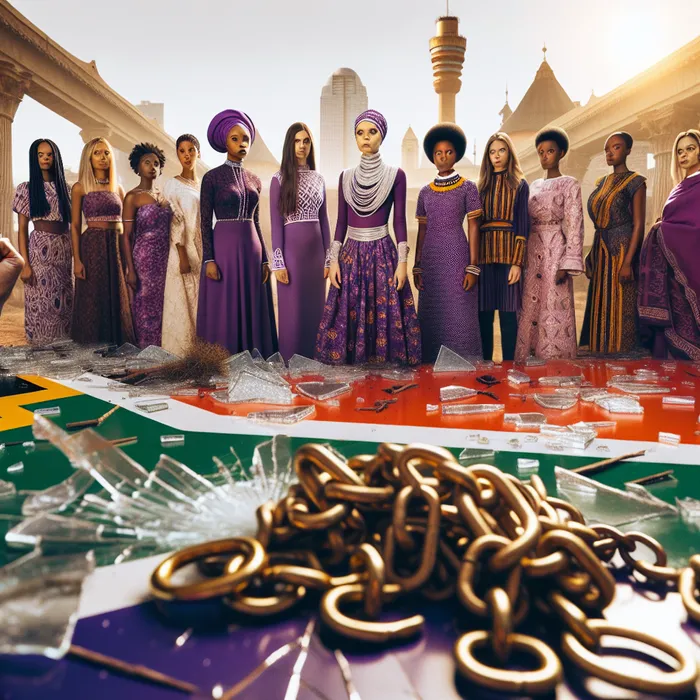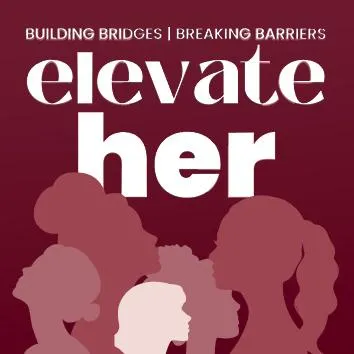
Women’s month, and women’s legacies are not just about today’s women, but also about tomorrow’s. The girls watching now will become the society we create.
Image: Ron Ai
IN the heart of Johannesburg, the recent Iconic Women’s Soirée brought together a force of women determined to reshape South Africa’s future — not with slogans, but with strategy.
Spearheaded by the Nyatee Foundation, the event wasn’t just about celebration; it was a platform for constructing the future through dialogue, partnership, and practical pathways to women’s empowerment. And it could not have come at a more critical time.
As we conclude our annual Women’s Month, marked by the legacy of the 1956 Women’s March to the Union Buildings, we are reminded of the courageous women who took to the streets demanding an end to apartheid’s pass laws.
While the march targeted pass laws, its true aim was far greater: to challenge the structural erasure of women, and to demand equal footing in a country built on exclusion. It was a defiant statement that women would no longer be confined to the margins of society.
Yet, nearly 70 years later, many of those battles remain unfinished. Despite our democratic gains, South African women, particularly Black women, continue to carry the weight of systemic inequality. Gender-based violence rages on as a national emergency. Far too many women are holding families together with threadbare resources and no safety net. And yet, they are the backbone of entire communities.
Women-led households, which make up a significant portion of our post-apartheid society, remain the most overburdened and under-supported across the nation.

Women’s month, and women’s legacies are not just about today’s women, but also about tomorrow’s. The girls watching now will become the society we create.
Image: File
Over 10 million young women face the highest rates of unemployment in the country. According to Stats SA, rape was the most reported crime against children in the previous year, accounting for nearly 40% of all cases involving minors.
Many women remain locked out of opportunities before they ever get a chance to prove themselves. The gender pay gap remains stubbornly wide, despite progressive policies. Women are either underrepresented in leadership, underpaid in labour, or outrageously under-protected in law. In boardrooms and in homes, women are navigating invisible battles that remain unspoken — even sidelined in public discourses.
And yet, every August, these critical issues resurface with urgency, only to quietly recede again by September. We treat gender justice like a seasonal headline, rather than a year-round imperative. This is a critical opportunity to shift from reaction to resolution, and chart a new course for the women of South Africa.
That’s why spaces like the Iconic Women’s Soirée matter. Not because they’re polished, but because they’re powerful. They offer what society so often withholds: a platform where women speak truthfully, connect intentionally, and build collectively. These aren’t just networking events; they are critical interventions. They are movements in the making. They are the epitome of nation-building.
The Soirée, which I was privileged to cover, tackled various key issues, including mental health, mentorship, leadership, and legacy, with honesty and depth. But above all, it centred on agency.
“It’s okay to be the first woman,” said business leader Nosipho Damasane, “but it’s criminal to be the only woman.” That single sentence sparked a wave of applause that echoed long after it was said. Because we know, too well, what it means to be the exception in spaces not built for us. And we know that if we do not create spaces for ourselves, we risk remaining excluded from the tables where decisions are made about our futures and communities.
This is why organisations like the Nyatee Foundation are not optional; they’re urgent. They’re demonstrating what true support for women looks like when it’s not just symbolic. From resourcing grassroots movements to spotlighting women-led initiatives, they’re not just part of the conversation; they're reshaping the agenda. This is what intentional, accountable transformation looks like.
But here’s the truth: no amount of well-intentioned events will matter if they aren’t matched with systemic change.
Commemorating Women’s Month means nothing if we’re not confronting the realities that women face every single day of the year. We cannot pay tribute to the women of 1956 with lip service while neglecting the structural violence their granddaughters and descendants still endure.
You can’t empower women on empty promises. Justice lives in action. And meaningful transformation is never possible without the structures to support it. We need to be unwaveringly clear in driving forward progress that is built on solid policy, backed by budgets, and upheld through accountability.
We need to invest in women’s safety, wellbeing, education, and leadership - not only in theory, but also in practice. Not with one-off campaigns, but with long-term commitments. The success of women in this country is not optional; it is fundamental to our society’s survival and our collective future.
Women’s month, and women’s legacies are not just about today’s women, but also about tomorrow’s. The girls watching now will become the society we create. If we fail to address GBV, pay inequity, unemployment, and systemic erasure today, we’re passing those failures on like a crippling inheritance. And truly, we’ve inherited enough.
The women of 1956 didn’t march so we could settle for symbolism. They marched for justice, equity, and freedom in every shape and form. That baton is now in our hands. The question is: will we run with it, or simply admire it?
If we are truly serious about transformation, we must centre women every day — in policy, in leadership, in funding, in safety, in integrity. We must support institutions like the Nyatee Foundation that are already doing the work. And we must replicate spaces like the Soirée across every school, church, club, province, city, rural town and dorpie - until the empowerment of women is not exceptional, it is expected.
This moment, this month, must not mark the end of the conversation. It must mark the beginning of sustained action. Because legacy isn’t just what we remember, it’s what we build. And South African women are building it. Fiercely, strategically, unapologetically, and collectively. Every single day.
* Tswelopele Makoe is a gender and social justice activist and editor at Global South Media Network. She is a researcher, columnist, and an Andrew W Mellon scholar at the Desmond Tutu Centre for Religion and Social Justice, UWC.
** The views expressed here do not reflect those of the Sunday Independent, IOL, or Independent Media.